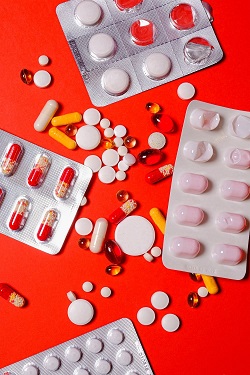9,500 dedicated outlets opened to provide generic medicines
In order to promote sale of quality generic medicines at affordable prices to all citizens, Pradhan Mantri Bhartiya Janaushadhi Pariyojana (PMBJP) has been implemented by Pharmaceuticals & Medical Devices Bureau of India (PMBI), a society under the aegis of the Department of Pharmaceuticals, wherein about 9,512 dedicated outlets known as Pradhan Mantri Bhartiya Janaushadhi Kendras (PMBJKs) have been opened till 30.06.2023 to provide quality generic medicines at affordable prices.

Prices of medicines sold through these Prices of medicines sold through Janaushadhi Kendras are 50-90% less than that of branded medicine prices in the open market outlets are 50-90% less than that of branded medicine prices in the open market.
The government has also launched a mobile application ‘Janaushadhi Sugam’ that provides information to public about location of kendras, help them search Janaushadhi medicines and compare the maximum retail price of Generic vs. Branded medicines, etc.
Further, Clause 1.5 of Indian Medical Council (Professional Conduct, Etiquette and Ethics) Regulations, 2002 prescribes that every physcian should prescribe drugs with generic names legibly and preferably in capital letters. Additionally, the erstwhile Medical Council of India (MCI) had issued Circulars vide which all the Registered Medical Practitioners have been directed to comply with the aforesaid provisions.
Moreover, the Directorate General of Health Services has directed all Central Government hospitals to prescribe generic medicines only. Similar instructions also have been issued to ‘prescribe drugs with generic name legibly’ to all CGHS Doctors and Wellness Centres.
Under free drug initiatve of National Health Mission (NHM), support is provided for provision of essential generic drugs free of cost in public health facilities.
Only quality Generic Medicines are sold through PMBJKs. In order to ensure quality of the products, PMBI procures medicines only from World Health Organization – Good Manufacturing Practices (WHO-GMP) certified suppliers. Apart from this, each batch of drug is tested at laboratories accredited by ‘National Accreditation Board for Testing and Calibration Laboratories (NABL). Only after passing the quality tests, the medicines are dispatched to PMBJP Kendras.
Ministry of Health & Family Welfare and Central Drugs Standard Control Organization (CDSCO) have taken various regulatory measures to promote and ensure the quality of generic medicines, as under:
i. In order to ensure efficacy of drugs, the Drugs and Cosmetics Rules, 1945 have been amended providing that applicant shall submit the result of bioequivalence study along with the application for grant of manufacturing license of oral dosage form of some drugs.
ii. Directions have been issued to all the Principal/Health Secretaries of all States/UTs to instruct their respective Drug Licensing Authorities to grant/ renew licenses to manufacture for sale or for distribution of drugs in proper/generic names only.
iii. Drugs and Cosmetics Rules, 1945 has been amended making it mandatory that the application for grant of license for a drug formulation containing single active ingredient shall be made only in proper name.
iv. Amendments have been made in the Drugs and Cosmetics Rules, 1945 for making it mandatory that, in case the applicant intends to market the drug under a brand name or trade name, the applicant shall furnish an undertaking in Form 51 to the Drug licensing authority that such or similar brand name or trade name is not already in existence with respect to any drug in the country and the proposed brand name or trade name shall not lead to any confusion or deception in the market.
National List of Essential Medicines (NLEM) published by the Ministry of Health & Family Welfare is incorporated in Schedule-I of the Drugs (Price Control) Order. National Pharmaceutical Pricing Authority (NPPA) under Department of Pharmaceuticals (DoP) fixes the ceiling price of Scheduled medicines specified in the Schedule-I of the Drugs (Prices Control) Order, 2013 (DPCO, 2013) as per the extant provisions of the DPCO, 2013. Ceiling prices of 915 scheduled formulations have been notified as on 17.07.2023. Out of these, ceiling prices of 691 formulations have been fixed under NLEM, 2022 and for 224 formulations under NLEM, 2015. Retail price of around 2450 new drugs notified under DPCO, 2013 till 17.07.2023. Further, in case of extraordinary circumstance DPCO, 2013 provides for fixation of ceiling or retail price of any drugs in public interest for such period as it may deem fit.
The Union Minister of State for Health and Family Welfare, Dr Bharati Pravin Pawar stated this in a written reply in the Lok Sabha on Friday, August 11, 2023.
